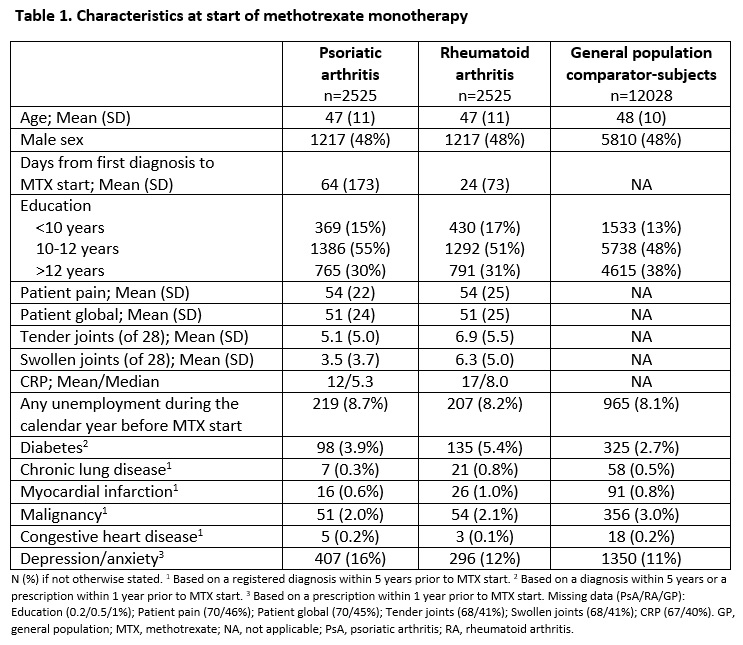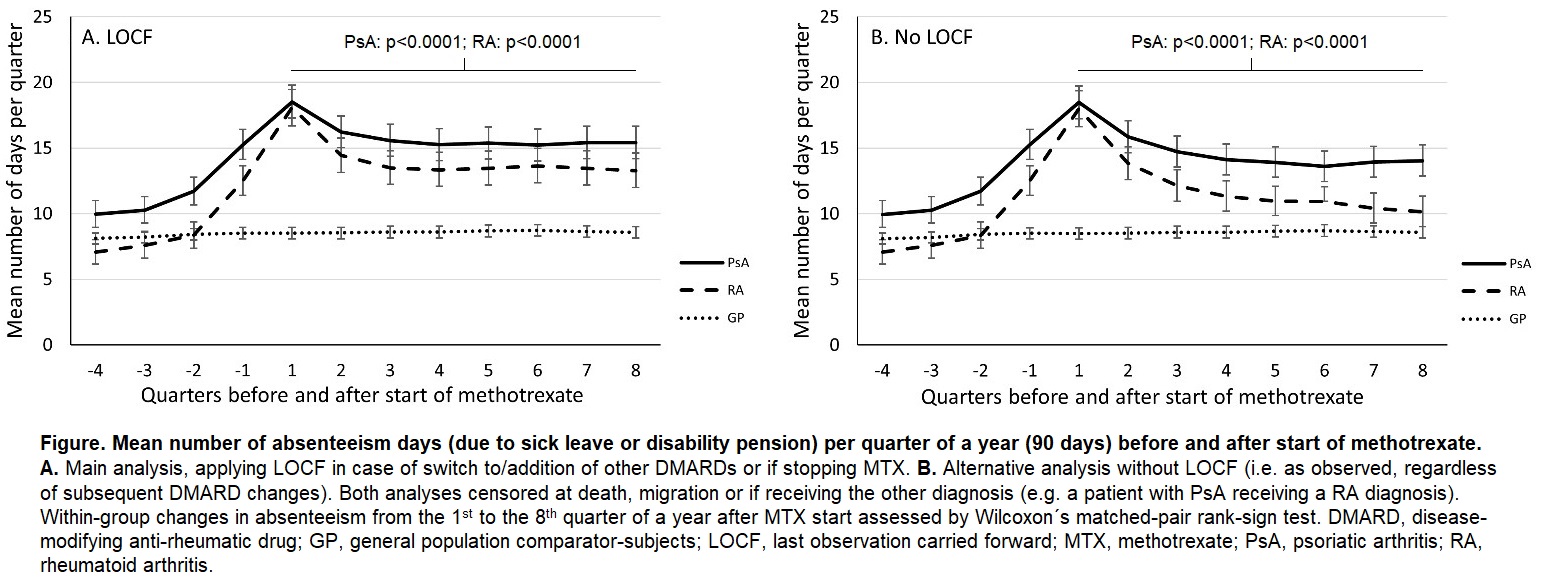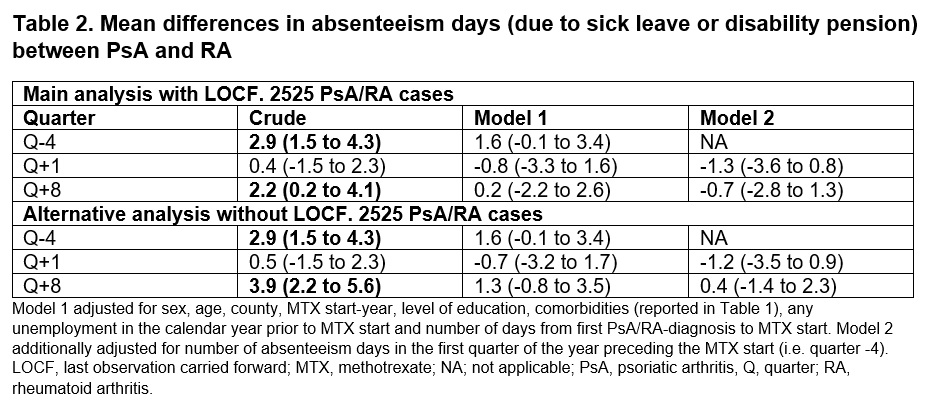Session Information
Date: Monday, November 13, 2023
Title: (1412–1441) Spondyloarthritis Including Psoriatic Arthritis – Treatment Poster II: SpA
Session Type: Poster Session B
Session Time: 9:00AM-11:00AM
Background/Purpose: In many countries, methotrexate (MTX) monotherapy is the first-line disease-modifying anti-rheumatic drug (DMARD) therapy for psoriatic arthritis (PsA), despite that its efficacy in PsA (in contrast to rheumatoid arthritis [RA]) has not been clearly shown in placebo-controlled trials. In light of this paucity of evidence, data on the effect of MTX on work absenteeism in PsA –relevant to both individual and society – is of interest. Thus, we aimed to investigate absenteeism development in relation to MTX start in newly-diagnosed PsA, and to contrast this to the situation in RA and among general population (GP) comparator-subjects.
Methods: Patients aged 18-62 years (y) with newly-diagnosed PsA in Sweden (≤2y since first main PsA ICD-code from rheumatology/internal medicine), starting MTX monotherapy as their first DMARD 2011-2019, were identified from nationwide registers (with a diagnostic validity of >85% for both PsA and RA). Each PsA case was matched to a corresponding patient with newly-diagnosed RA, starting MTX monotherapy, and to 5 GP comparator-subjects (matching for age, sex, county, and [for RA] MTX start-year). The number of absenteeism days (sick leave or disability pension, due to any reason) per quarter of a year (90 days) was retrieved from the Social Insurance Agency and evaluated from 1y before until 2y after MTX start. In order to assess absenteeism development specifically in relation to MTX monotherapy, in case of switch to/addition of other DMARDs or if stopping MTX, last observation carried forward (LOCF) of the number of absenteeism days in the month when this change occurred, was applied in our main analysis. An alternative analysis without LOCF was, however, also performed, thus reporting the absenteeism development as observed, regardless of further DMARD changes. Within-group changes in absenteeism were analyzed by Wilcoxon´s matched-pair rank-sign test, and comparisons between PsA and RA by bootstrapped ANCOVA, crude and adjusted for relevant confounders (see Table 2).
Results: At MTX start, patient-reported outcomes in PsA and RA were similar, while CRP and swollen joints were numerically higher, and time from diagnosis shorter, in RA (Table 1). Already 1y prior to MTX start, the PsA cases (but not RA) displayed higher absenteeism levels compared to the GP (Figure, panel A). In PsA and RA, absenteeism thereafter increased, peaking in the first quarter after MTX start, but then decreased significantly over the 2y follow-up in the main (Figure, panel A) as well as the alternative analysis (Figure, panel B), although numerically more in RA. While significant improvements were seen with MTX monotherapy (Figure, panel A), the superior outcomes in the as observed analysis (Figure, panel B) suggest an added benefit of subsequent DMARD changes. In the adjusted comparisons, absenteeism levels did not differ significantly between PsA and RA at any timepoint (regardless of analysis; Table 2).
Conclusion: Our results suggest a significant improvement of work absenteeism, following MTX start in PsA. Considering that work ability is a both prioritized and objectively assessed outcome, this offers additional support for MTX use in PsA, for which trial-based evidence is limited.
To cite this abstract in AMA style:
Lindström U, Di Giuseppe D, Exarchou S, Alenius G, Olofsson T, Klingberg E, Jacobsson L, Askling J, Karlsson Wallman J. Improvement of Work Absenteeism Following Start of Methotrexate Monotherapy in Newly-Diagnosed Psoriatic Arthritis [abstract]. Arthritis Rheumatol. 2023; 75 (suppl 9). https://acrabstracts.org/abstract/improvement-of-work-absenteeism-following-start-of-methotrexate-monotherapy-in-newly-diagnosed-psoriatic-arthritis/. Accessed .« Back to ACR Convergence 2023
ACR Meeting Abstracts - https://acrabstracts.org/abstract/improvement-of-work-absenteeism-following-start-of-methotrexate-monotherapy-in-newly-diagnosed-psoriatic-arthritis/



